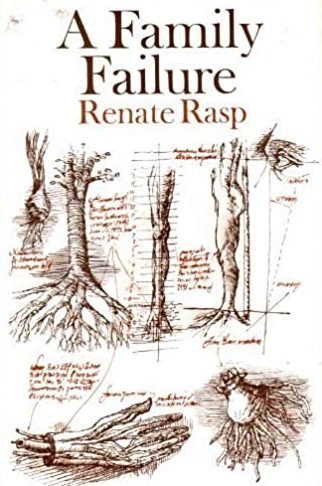 By RENATE RASP (Orion Press; 1970)
By RENATE RASP (Orion Press; 1970)
In this German-originated nightmare in ink a young man’s elders attempt to transform him into a tree(!) . Quintessentially European in tone and conception, it’s been compared with THE METAMORPHOSIS, yet A FAMILY FAILURE occupies a category of its own.
The novel, a bestseller in its native land, never received much attention in America (despite a good English translation by Eva Figes). That’s a shame, as its core allegory, concerning society’s attempts at molding its citizenry into abstract roles of its own devising, is nothing if not universal—and, I’d argue, more relevant now than it was back in 1970.
It begins with the first-person protagonist Kuno, a middle aged man, living with his domineering “uncle” Felix (actually his stepfather) and fragile mother. Kuno lacks hands, and during negotiations with a man selling artificial appendages finds some old wounds reopening. The resulting succession of flashbacks recount how as a child Kuno was subjected to all manner of torture by his uncle, who was bound and determined to make a tree out of Kuno. Uncle Felix’s tactics include starvation, binding Kuno’s legs bound together with wire, sensory deprivation and the amputation of both hands, all in preparation for the eventual planting of Kuno in the family garden. How this gambit ultimately plays out is given away by the title.
Author Renate Rasp, whose only novel this was, is careful to always keep this nutty account on the edge of plausibility. It’s quite detail oriented, from the haggling over the price and function of the artificial hands that dominates the opening chapter to the particulars of the brutal regiment imposed by Kuno’s uncle. Extremely close attention is paid the psychological machinations by which the latter keeps his wife and stepson cowed; both want desperately to please Uncle Felix, an abject bully who demands complete subservience at all times. The result is a triumph of surreal disquiet whose insights ring disturbingly true.
